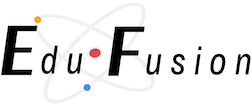The collaborative skillset has rightfully taken its place in the upper echelon of transferable skills deemed essential to college graduates of all learning modalities. Indeed, overwhelmingly positive student response to, and learning from, classroom collaborative activities is convincing and social constructivism points us to group construction of knowledge that creates a culture of shared meaning (Barkely et al., 2014) as a key learning principle (as cited in Robinson, Kilgore, & Warren, 2017). What’s more, numerous organizations today utilize group work to accomplish business objectives which emphasizes the value of developing collaboration skills in students. Yet, relative to distance education, collaboration represents a challenge for educators due to the increased difficulty of creating meaningful interactions for students. Hiltz et al. (2000) propose that, if this weakness can be mitigated through online group learning, students can achieve learning objectives as well or better than those in traditional learning environments (as cited in Robinson, Kilgore, & Warren, 2017).
Enter the wiki, a Web 2.0 technology that recently came into use as a learning tool in higher education. A wiki is simply a website consisting of pages that are collaboratively authored by a group (Page & Reynolds, 2015). Compared to information exchange on a singular basis, such as email, wikis can facilitate a higher level of interaction as students create pages and edit them collectively. It is this collective network structure that most differentiates wikis from mere information storage tools. An example from Page and Reynolds (2015) is versioning: A noteworthy feature in which a retrievable record of information changes is created allowing group members to revert to previous states of information in the event errors arise or necessary changes are identified; it’s a body of work that is tracked over time.
More than merely using collaborative groups throughout operations today, organizations are increasingly using wikis. Accordingly, students benefit from learning the technical skills necessary to work successfully within this environment. Another aspect that makes the wiki particularly effective for working adults attending online courses is the flexibility it affords; they can work asynchronously. Wikis are also known to contribute to other transferable skills like critical thinking and teamwork (Viol, 2015).
The wiki does come with limitations and considerations. Students must experience ease of use, therefore, including resources like YouTube videos, tutorials and additional support materials is necessary to address varying technical skills among students (Sharp & Whaley, 2018). Mandating a wiki’s use, instructor engagement with students through it, and ongoing and consistent encouragement and input from instructors are also critical to learning outcomes (Viol, 2015). Indeed, scaffolding and continued engagement from instructors appear to be non-negotiable elements. DiPasquale (2017) also points to the omittance of traditional communication channels like discussion boards as a pitfall that diminishes a wiki’s efficacy in learning environments. In sum, wikis require an instructor’s consistent engagement and effort to create a wiki as a vibrant, relevant, and interesting learning environment to which students are drawn. As such, the wiki can be a powerful learning tool in today’s online classroom.
The wiki offers significant advantages as a learning tool in the online classroom. However, as with most learning tools, its weaknesses must be mitigated to fully leverage those advantages toward student achievement of learning goals. By carefully selecting concept areas upon which to build wiki-based learning activities, providing supportive resources to help students climb the learning curve and engaging consistently with students throughout the activity, instructors can structure meaningful interactions and shared learning among students in the online classroom. Have you incorporated a wiki into your online classroom? Have you thought about a concept area to which a wiki activity could be well-suited? What are your thoughts or observations? You can email me at the link below or post a comment and I would love to hear from you!
References
DiPasquale, J. (2017). Wiki’d transgressions: Scaffolding still necessary to support online collaborative learning. Canadian Journal of Action Research, 18(3), 47–61. Retrieved from https://search-ebscohost-com.contentproxy.phoenix.edu/login.aspx?direct=true&db=eue&AN=129482250&site=ehost-live&scope=site.
Page, K. L., & Reynolds, N. (2015). Learning from a wiki way of learning. Studies in Higher Education, 40(6), 988–1013. https://doi-org.contentproxy.phoenix.edu/10.1080/03075079.2013.865158.
Robinson, H. A. ., Kilgore, W., & Warren, S. J. . (2017). Care, communication, learner support: Designing meaningful online collaborative learning. Online Learning, 21(4), 29–51. https://doi-org.contentproxy.phoenix.edu/10.24059/olj.v21i4.1240.
Viol, M. (2015). The use of Wikis within the virtual learning environment to support collaborative working and their influence on students’ learning experience. Journal of Perspectives in Applied Academic Practice, 3(2), 50–57. Retrieved from https://search-ebscohost-com.contentproxy.phoenix.edu/login.aspx?direct=true&db=eue&AN=110005239&site=ehost-live&scope=site.

